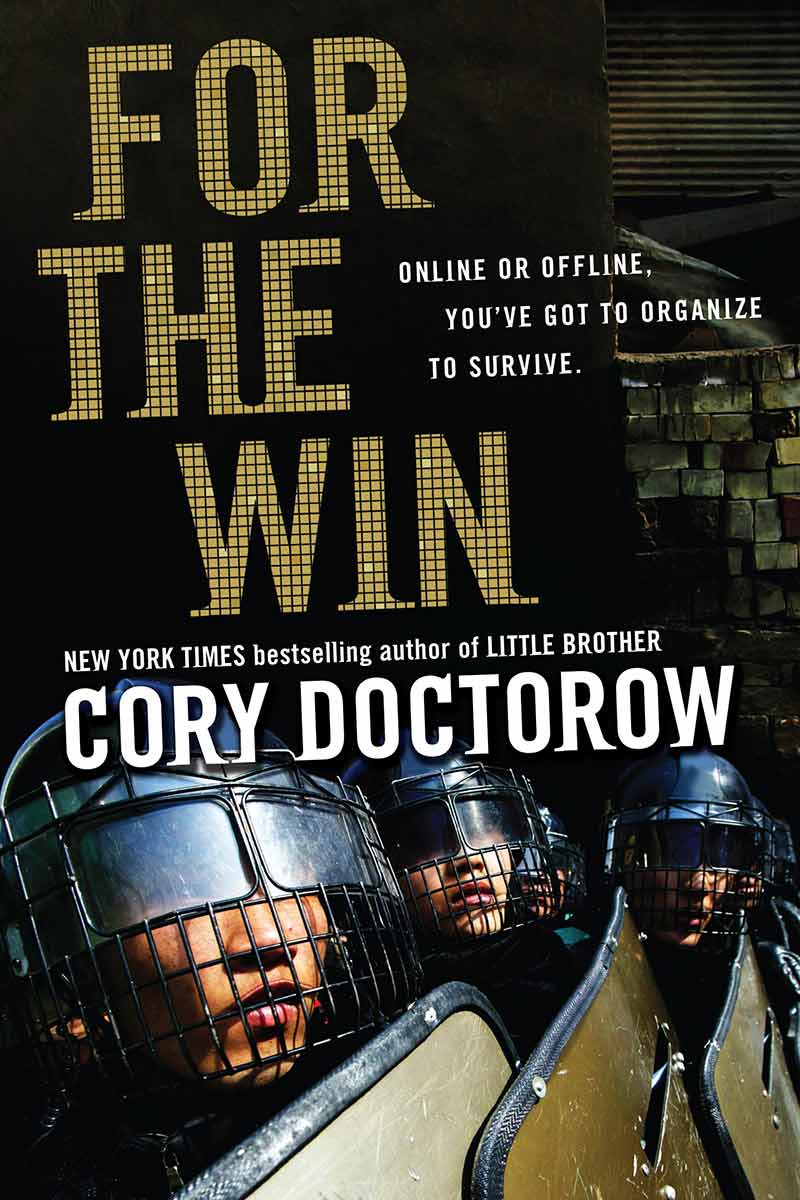Surveillance capitalism sucks: it improves the scattershot, low-performance success-rate of untargeted advertising (well below 1 percent) and doubles or triples it (to well below 1 percent!).
more
All About:
News

Here’s my reading (MP3) of Let’s get better at demanding better from tech, a Locus Magazine column about the need to enlist moral, ethical technologists in the fight for a better technological future. It was written before the death of EFF co-founder John Perry Barlow, whose life’s work was devoted to this proposition, and before the Google uprising over Project Maven, in which technologists killed millions in military contracts by refusing to build AI systems for the Pentagon’s drones.

Here’s the fourth and final part of my reading (MP3) of Petard (part one, part two, part three), a story from MIT Tech Review’s Twelve Tomorrows, edited by Bruce Sterling; a story inspired by, and dedicated to, Aaron Swartz — about elves, Net Neutrality, dorms and the collective action problem.

Here’s the third part of my reading (MP3) of Petard (part one, part two), a story from MIT Tech Review’s Twelve Tomorrows, edited by Bruce Sterling; a story inspired by, and dedicated to, Aaron Swartz — about elves, Net Neutrality, dorms and the collective action problem.

I recorded a great interview (MP3) about my novel Walkaway and how it fits into radical politics; a free, fair and open internet; the Nym Wars, parenting, and insurgency.
Earlier this spring, while I was on my Australia/NZ tour, I sat down with Australian author Nick Earls for his Green Room show, (MP3) to gossip, complain, and daydream about the writer’s life.

I’m heading to Phoenix Comics Fest tomorrow (going straight to the airport from my daughter’s elementary school graduation) (!), and I’ve got a busy schedule so I thought I’d produce a comprehensive list of the places you can find me in Phoenix:
more

Today marks the release of the paperback of Walkaway, along with reissues of my five other adult novels, all in matching covers designed by the incredible Will Stahle (and if ebooks are your thing, check out my fair-trade ebook store, where you can get all my audiobooks and ebooks sold on the same terms as physical editions, with no DRM and no license agreements!).
“Science fiction writer and cyberactivist Cory Doctorow joined the Future Trends Forum to explore possibilities for technology and education.”

Here’s the second part of my reading (MP3) of Petard (part one), a story from MIT Tech Review’s Twelve Tomorrows, edited by Bruce Sterling; a story inspired by, and dedicated to, Aaron Swartz — about elves, Net Neutrality, dorms and the collective action problem.




























